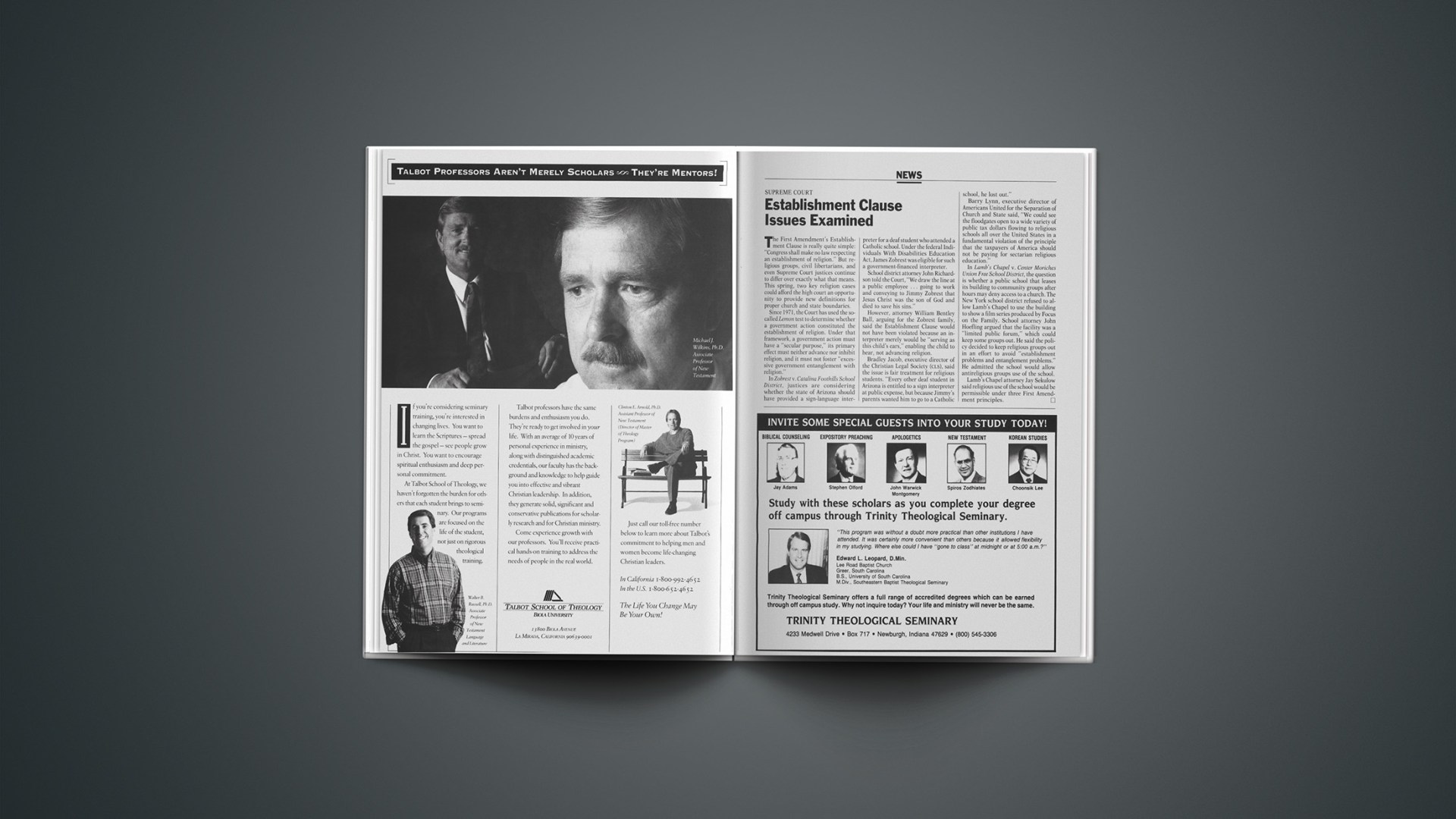The First Amendment’s Establishment Clause is really quite simple: “Congress shall make no law respecting an establishment of religion.” But religious groups, civil libertarians, and even Supreme Court justices continue to differ over exactly what that means. This spring, two key religion cases could afford the high court an opportunity to provide new definitions for proper church and state boundaries.
Since 1971, the Court has used the so-called Lemon test to determine whether a government action constituted the establishment of religion. Under that framework, a government action must have a “secular purpose,” its primary effect must neither advance nor inhibit religion, and it must not foster “excessive government entanglement with religion.”
In Zobrest v. Catalina Foothills School District, justices are considering whether the state of Arizona should have provided a sign-language interpreter for a deaf student who attended a Catholic school. Under the federal Individuals With Disabilities Education Act, James Zobrest was eligible for such a government-financed interpreter.
School district attorney John Richardson told the Court, “We draw the line at a public employee … going to work and conveying to Jimmy Zobrest that Jesus Christ was the son of God and died to save his sins.”
However, attorney William Bentley Ball, arguing for the Zobrest family, said the Establishment Clause would not have been violated because an interpreter merely would be “serving as this child’s ears,” enabling the child to hear, not advancing religion.
Bradley Jacob, executive director of the Christian Legal Society (CLS), said the issue is fair treatment for religious students. “Every other deaf student in Arizona is entitled to a sign interpreter at public expense, but because Jimmy’s parents wanted him to go to a Catholic school, he lost out.”
Barry Lynn, executive director of Americans United for the Separation of Church and State said, “We could see the floodgates open to a wide variety of public tax dollars flowing to religious schools all over the United States in a fundamental violation of the principle that the taxpayers of America should not be paying for sectarian religious education.”
In Lamb’s Chapel v. Center Moriches Union Free School District, the question is whether a public school that leases its building to community groups after hours may deny access to a church. The New York school district refused to allow Lamb’s Chapel to use the building to show a film series produced by Focus on the Family. School attorney John Hoefling argued that the facility was a “limited public forum,” which could keep some groups out. He said the policy decided to keep religious groups out in an effort to avoid “establishment problems and entanglement problems.” He admitted the school would allow antireligious groups use of the school.
Lamb’s Chapel attorney Jay Sekulow said religious use of the school would be permissible under three First Amendment principles.










